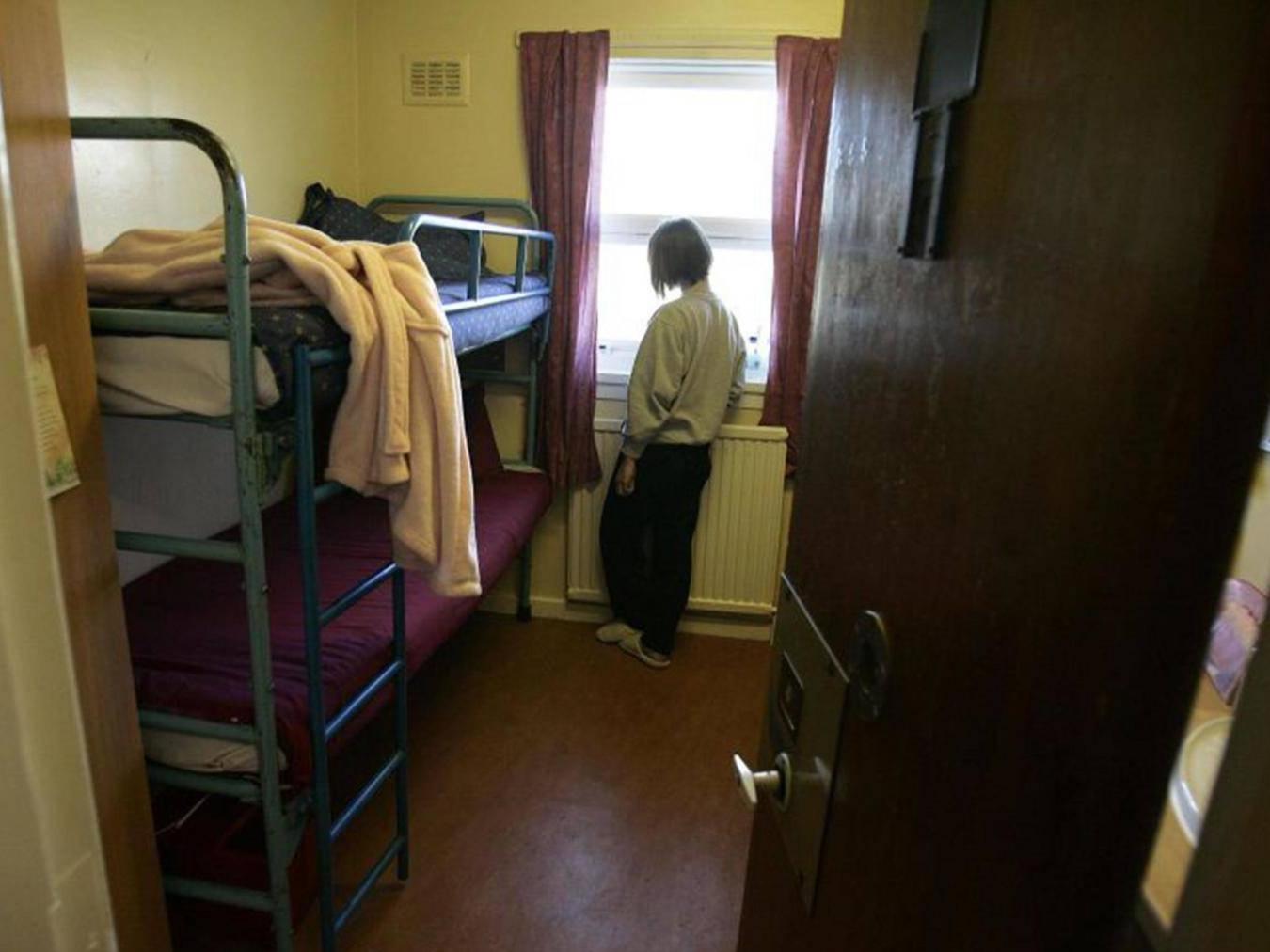Half of female prisoners being released to homelessness, report warns
'The desperate shortage of housing leaving so many vulnerable women homeless is of great and increasing concern,' says Chair of the IMB at Bronzefield prison

Half of female prisoners are left homeless after their release from prison, a report into the largest women's prison in Europe has found.
A study by the Independent Monitoring Board (IMB) on HMP Bronzefield found 50 per cent of inmates left with no fixed residence.
The report drew attention to the impact the Offender Rehabilitation Act has had on the number of recalls to prison.
The law sees former inmates frequently taken back to prison for minor infringements where they can spend several more weeks in prison without achieving proper rehabilitation.
Sandra Mooney, chair of the IMB at the prison, said despite staff working "hard to provide a safe and positive environment for the women prisoners in their care", she remained "extremely concerned about the provision of secure hospital facilities for women with severe mental health illness".
She added: “The rising number of short-term recalls to prison and the desperate shortage of housing leaving so many vulnerable women homeless is of great, and increasing, concern to the board”.
The IMB challenged the justice secretary and the mayor of London about the critical dearth of housing for what is often a vulnerable cohort of women.
The report also found that on discharge, prisoners are only given 48 hours of prescription medication, which can be a problem for those who are homeless and not registered with a GP.
Over 95 per cent of prisoners in Bronzefield, a Category A adult and young offender female jail on the outskirts of Ashford in Surrey, are taking some sort of regular medication. It is the only purpose-built private prison solely for women in Britain.
Jenny Earle, director of the Prison Reform Trust’s Transforming Lives to Reduce Women’s Imprisonment programme, said: “Yet again, a prison watchdog highlights the problem of short-term prisoners being released with no home to go to.
“More than two years after Bronzefield prison had to resort to giving women tents to sleep in when they left custody, and nearly six months after the government published its long-awaited strategy on women offenders, this report rightly asks what has been done to fix a problem that only ministers can solve.
“The startling growth in the number of women recalled to prison since the government’s so-called ‘rehabilitation revolution’ took effect; and the continuing scandal of women detained under the discredited IPP sentence, rightly attract criticism.
"Ministers are quick to hold others accountable for operational failings, but as this report makes clear, the challenges facing Bronzefied require answers from the politicians.”
A report published by the Prison Reform Trust and Women in Prison in June found a chronic shortage of housing support for women released from custody was a key contributing factor in many returning to prison.
The report, titled Home truths: housing for women in the criminal justice system, found that while in-prison housing support needed to be an integral part of getting inmates ready for release, it is often last-minute, with some women unsure on the morning of their release if they will have accommodation that evening.
“We are aware of a woman who had been imprisoned for theft, subsequently released homeless, was recalled for breach of Anti-Social Behaviour Order for sleeping in a park and then later released homeless again,” a support worker at Women in Prison told researchers.
The lack of stable accommodation means it is more difficult for women to secure employment or training, arrange benefits, and re-establish contact with children and families. Many women become trapped in an ongoing cycle of offending, struggling to meet their licence conditions, carrying out further crimes due to critical necessity, or in some cases returning to custody in an attempt to eschew homelessness.
Female prisoners are often placed in prisons far away from their local community due to the fact the female prison population is smaller and women’s prisons are significantly more geographically dispersed. This restricts chances to liaise with relevant housing organisations and meet eligibility criteria.
The vast majority of female offenders are handed short sentences of six months or less for minor crimes, with a quarter imprisoned for under a month. However, the jail sentence can still be profoundly disruptive – causing people to lose their jobs, homes and contact with children.
Factors said to drive women to turn to crime include poverty, drug and alcohol problems, mental health issues and coercive relationships with men.
Some 60 per cent of female offenders have experienced domestic abuse, an estimated 24 to 31 per cent have dependent children and those in jail or on probation are more than twice as likely to suffer mental health issues as men.
Almost half of all female prisoners in England and Wales say they committed their offence to support the drug use of someone else, according to Ministry of Justice data, while many more are substance abusers themselves.
Join our commenting forum
Join thought-provoking conversations, follow other Independent readers and see their replies
Comments
Bookmark popover
Removed from bookmarks